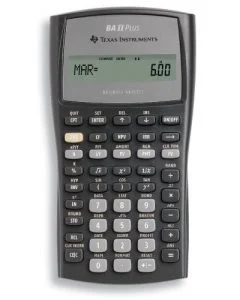 If you have $100 today, what is it worth? What would you pay today to ensure you receive $100 one year from now? Would you pay $95 or $105? Bankers, loan specialists, and mortgage brokers are experts in the time value of money (TVM). Finance students spend a lot of time on this because it is so important. While it is important, it is not very difficult to understand.
If you have $100 today, what is it worth? What would you pay today to ensure you receive $100 one year from now? Would you pay $95 or $105? Bankers, loan specialists, and mortgage brokers are experts in the time value of money (TVM). Finance students spend a lot of time on this because it is so important. While it is important, it is not very difficult to understand.
Present Value – This is the root of the time value of money. The present value is what a sum of money is worth today. This is used commonly in bond valuations and annuities, where the final payout is fixed. The PV of any sum of money depends on several factors: the future value (terminal value), interest rate, and number of periods. Based on those inputs, any financial calculator can work backwards and tell you what the sum is worth today. The present value is almost always smaller than the future value. For example, at 8% (often called the discount rate) $108 in one year is worth $100 today.
Future Value – If you have $100, what is it worth in 10 years? In 20? That is what you have to think about when investing. If you put $100 in the bank at 8%, it is worth $108 in one year. This is just like the example above, but in reverse. At the same 8%, the $100 is worth $116.64 in 2 years, $125.97 in 3 years, $136.05 in 4 years, and so on. The key here is compounding interest. At the end of each period, the 8% interest is calculated on the original principal plus accumulated interest.
What Does This Mean To You? – Do you have a bank account? Do you have a loan? Are you investing in savings bonds? How about stocks? If you have a mortgage, this is really important to you. If you have a retirement account, all of those years add up.
While this is something you might never think about, it really does impact your everyday life. When you have a mortgage, you essentially pay for your house twice. When you calculate interest saved from early payments taking the time value of money into account, you might be surprised how much you save. If you think a 1% fee on your 401(k) is no big deal, compute what you would have at the end of 30 or 40 years earning 1% more.
A good, simple TVM calculator can be found here: Present Value/TVM Calculator. You can also try it with an amortization table for a loan: Bankrate Loan Calculator. Learn this and understand the impact it has on you. If I missed something, feel free to ask me questions in the comments or through the contact form.
